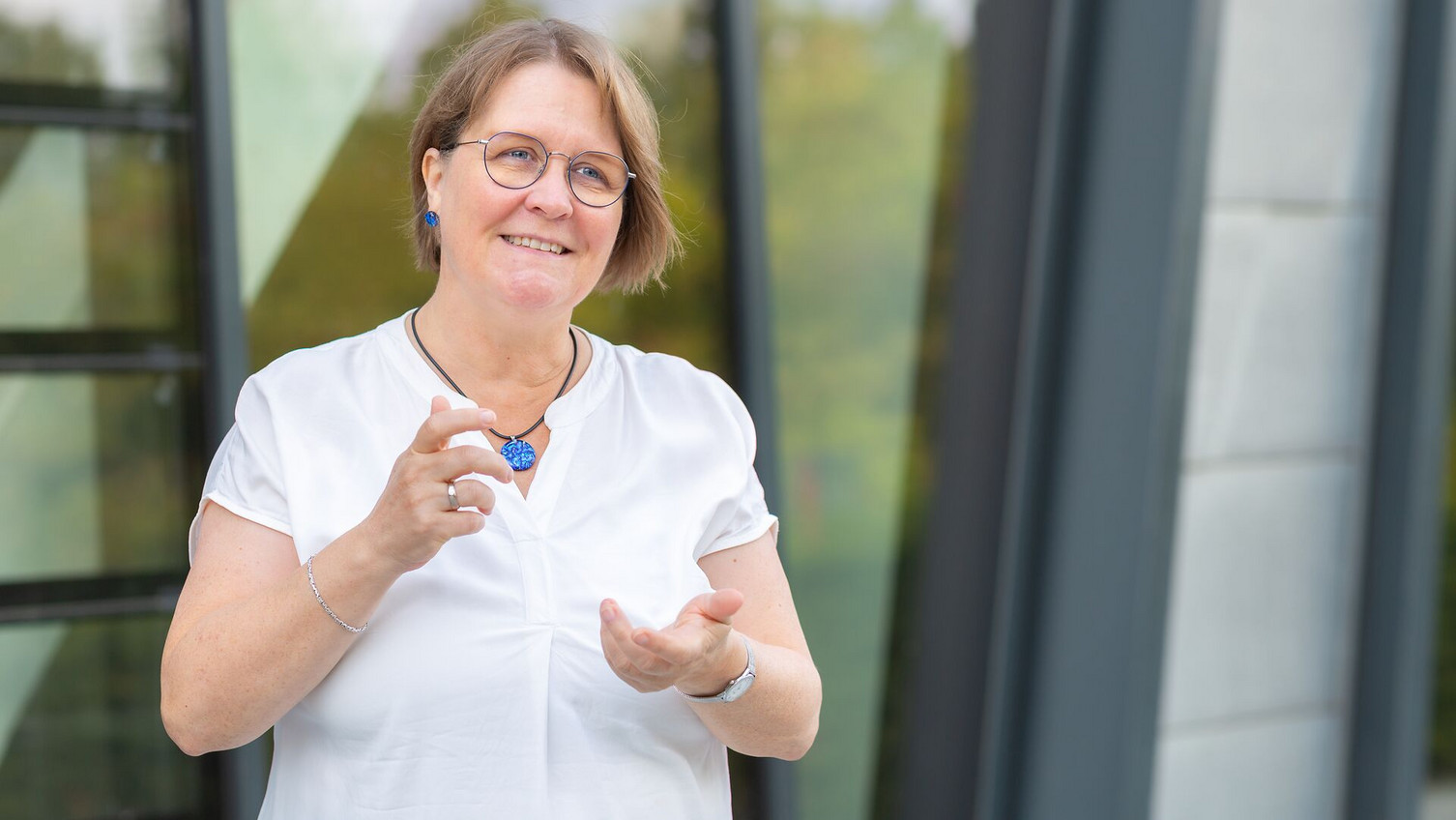Equal Opportunities Officer: Dr Kathrin van Riesen begins her third term of office
2025-11-10 Posters promoting mindfulness in lifts, Diversity Day, and career advancement for FLINTA* individuals: since 2012, the Equal Opportunities Officer and her team have been championing marginalised people. At the start of her third term in office, Kathrin van Riesen takes stock.
You have been in office for over ten years. How has the concept of equality changed in society and at Leuphana?
A lot has changed. The original women's offices, which were established in the 1970s and 1980s, were set up in Lower Saxony in the 1990s and developed into equality offices in the 2000s. At that time, the focus was still very much on equality between men and women, i.e. very binary thinking. Today, the perspective has broadened: issues such as diversity and anti-discrimination work, gender diversity and work-life balance, which promotes egalitarian partnerships, play a central role. Today, work and family life should be compatible for everyone – but that remains a major challenge, not only at universities.
How do you provide concrete support in this area?
For example, by setting up our family service. This service provides advice on parental leave, studying with children or childcare, for example in nurseries, the right to vote for student parents, or it provides parent-child workspaces.
You talk about diversity. What distinguishes a diversity concept from an equality concept?
The equality concept specifically targets gender equality. Diversity covers a much broader spectrum: inclusion, protection against discrimination, people with physical disabilities or chronic illnesses, but also ethnic, social and cultural diversity. Our first university diversity concept was developed in 2023, building on our previous work and complementing our equality plans.
What practical measures have you implemented in this context?
For example, we have changed the infrastructure: among other things, there are changing tables in toilets, gender-neutral toilets (‘toilets for all’), quiet rooms and barrier-free access and participation. In teaching, we focus on diversity certificates in bachelor's and master's programmes. We also support the career development of FLINTA* individuals through mentoring programmes such as ‘Pro Science’ and ‘Pro Via’.
What is the situation for women in science?
The proportion of women among W2 professors is currently 32%, and among junior professors it is as high as 67%. The ‘glass ceiling’ is particularly evident in W3 professorships, which are still dominated by men. This figure is in line with a nationwide trend. Efforts to achieve equality must be intensified both here and nationwide. Overall, women make up over 50% of academic staff positions. We have achieved a lot, but the top echelons remain challenging.
What are your plans for the coming years?
We want to bring about lasting change in the culture of the university, embed inclusion and equality, promote equal opportunities and, at the same time, strengthen diversity in teaching, research and administration. The visiting scholar programme for gender studies in all faculties is another means of supporting these goals. With Dr Ben Trott, we finally have an Academic Director for Gender Studies. This underlines that equality and equal opportunities are not only highly relevant to society, but have also long since arrived in research.
Thank you very much for talking to us!

